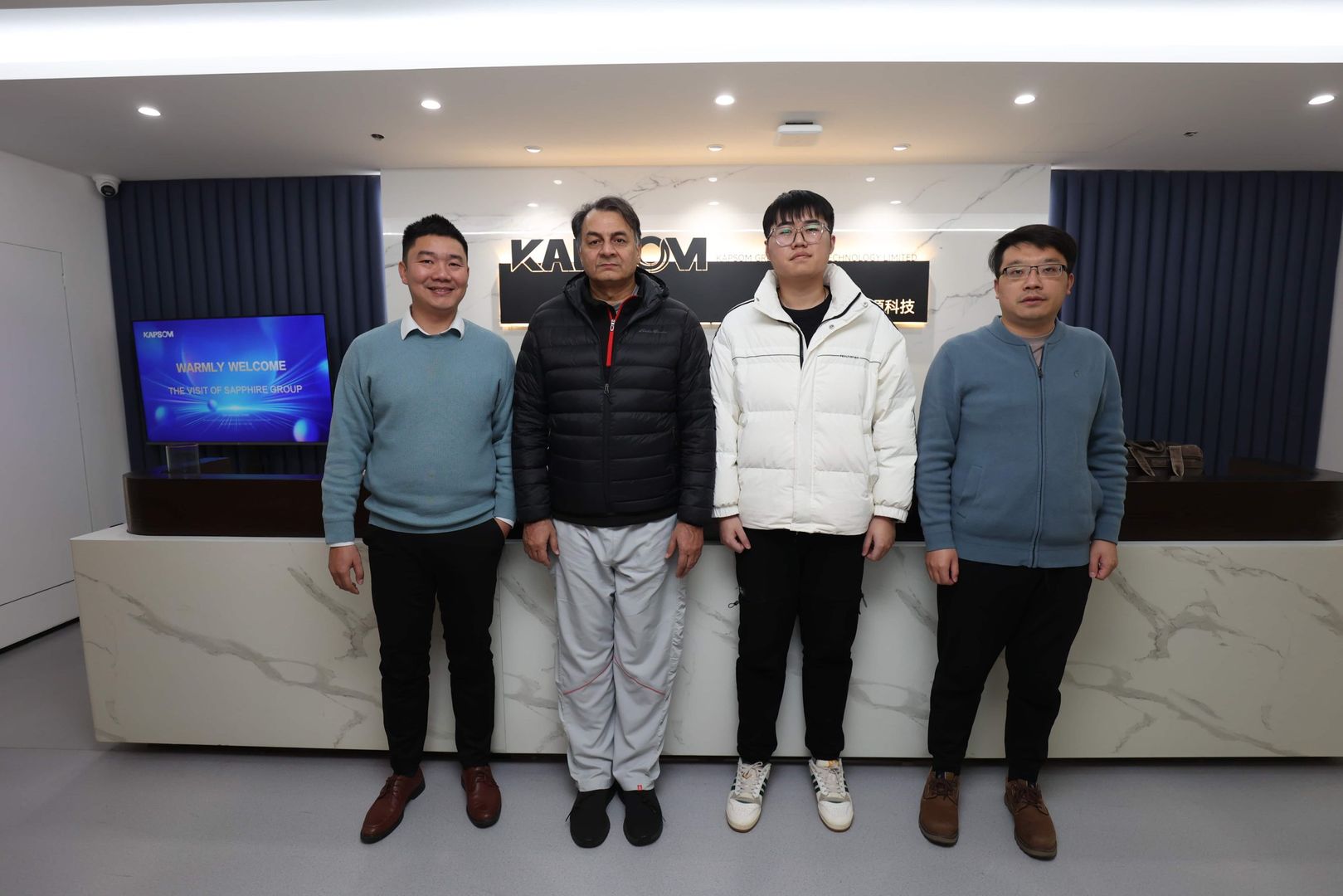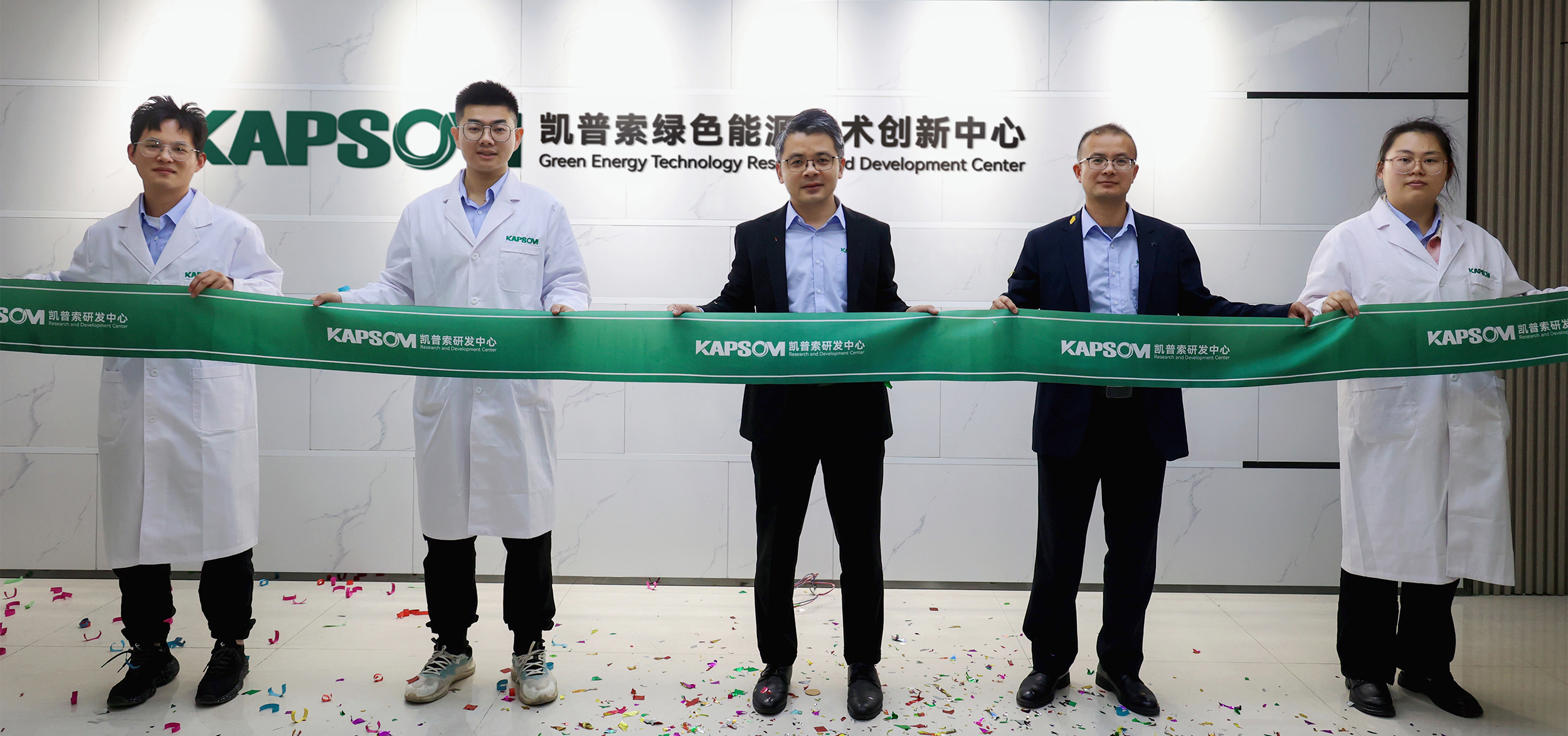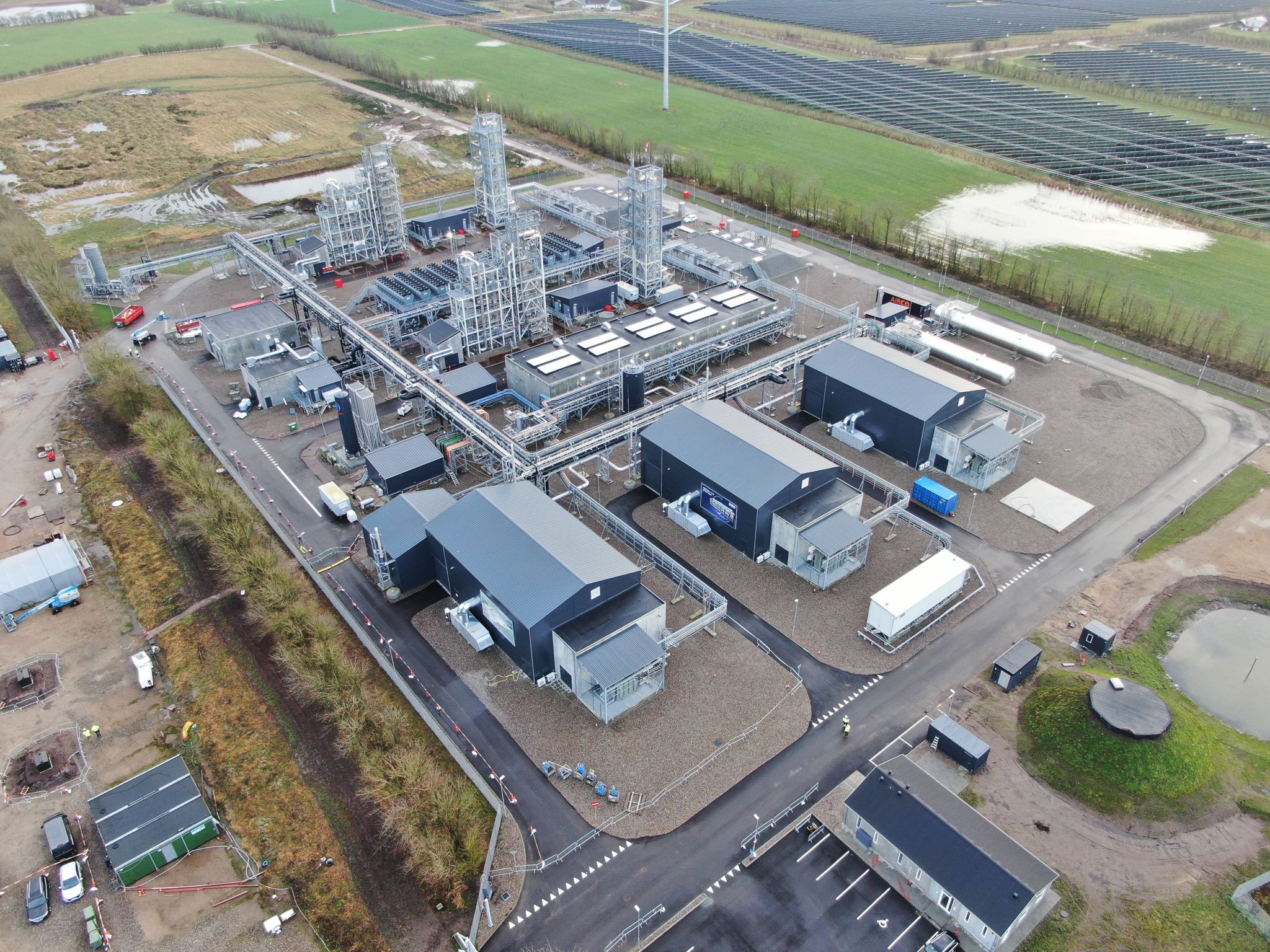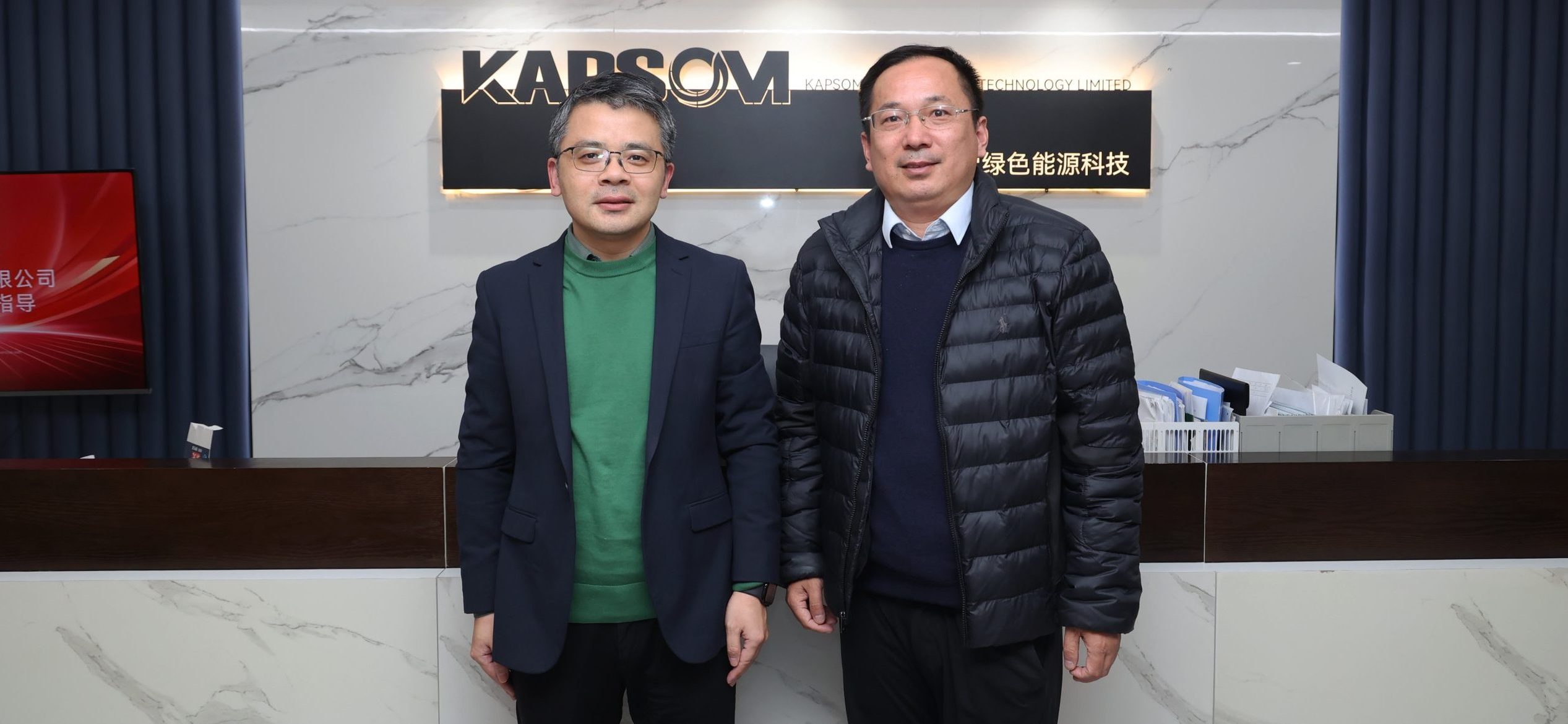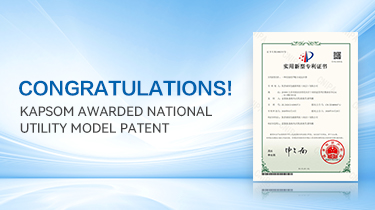On January 9, 2024, the Director of Strategy and Special Projects from Pakistan’s Sapphire Group paid a visit to KAPSOM. During the meeting, they engaged in discussions regarding the recent introduction of green hydrogen and its subsequent phases under the Sapphire plan. The agenda included strategic project planning, technical exchanges, and business negotiations.

Sapphire Group Profile
Sapphire Group, headquartered in Lahore, stands as one of Pakistan’s largest and most diversified industrial conglomerates. The group’s operations span multiple sectors, including textiles, power generation, dairy products, and cement, with an annual revenue of US$13.5 billion and a workforce exceeding 35,000 employees.
As one of Pakistan’s foremost textile manufacturers and exporters, its subsidiaries, Sapphire Wind Power Company Limited and Tricon Boston Consulting Corporation Limited, have pioneered the establishment of Pakistan’s inaugural wind farms, boasting an installed capacity of 200MW.
Energy, serving as a vital foundation for economic development and social stability, plays a pivotal role in limiting sustainable economic and social progress. Positioned as the sixth most populous country globally, Pakistan boasts a diversified economic system. Nonetheless, a persistent energy shortage has severely impeded the stable growth of the nation’s economy. With the escalation of population growth and electricity demand, coupled with the geopolitical tensions between Russia and Ukraine causing notable fluctuations in the international energy market, the prices of natural gas and electricity have surged dramatically. This issue has assumed an increasingly serious dimension.
In addressing the energy crisis and stabilizing the economy, the Pakistani government has adopted a dual-faceted strategy. On one front, it has initiated an energy conservation plan, curbing electricity demand by imposing restrictions on the operational hours of large commercial institutions and implementing a five-day work week. This measure aims to cope with the growing scarcity of fuel and petroleum products for power generation, a situation exacerbated by soaring energy costs. Simultaneously, the government has implemented various policies to boost the share of renewable energy in both production and consumption, with the objective of mitigating domestic power shortages.
As a pioneer in sustainable development in Pakistan, in addition to its core textile business, Sapphire is also committed to developing and using renewable energy and reducing carbon emissions. During this visit to KAPSOM, the two parties conducted technical exchanges on how to use green hydrogen to replace hydrogen produced by steam methane reforming (SMR), and discussed the next work plan. The general principle was geared towards diminishing the group’s reliance on fossil energy in its production and operations, with the overarching objective of curbing associated pollutant emissions, aligning perfectly with Sapphire’s commitment to sustainable development.
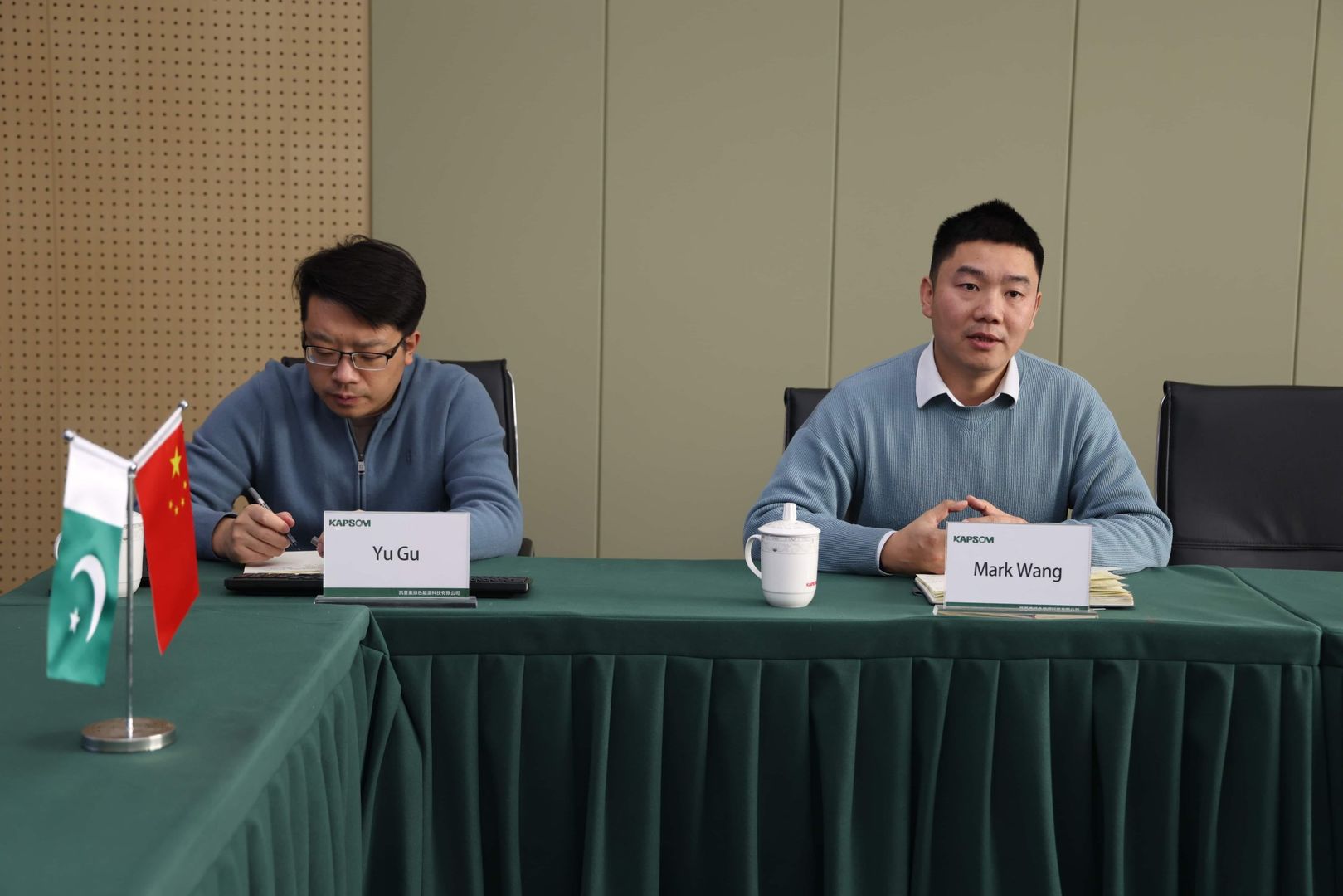
The interaction with Sapphire has provided us with a more profound insight into the progress and demand for renewable energy in Pakistan. KAPSOM is eager and anticipates collaborating with exceptional companies like Sapphire. By leveraging our company’s core green energy technology, we aim to assist organizations in attaining sustainable development and contribute towards the realization of Pakistan’s clean power generation goals for 2025 and 2030.
